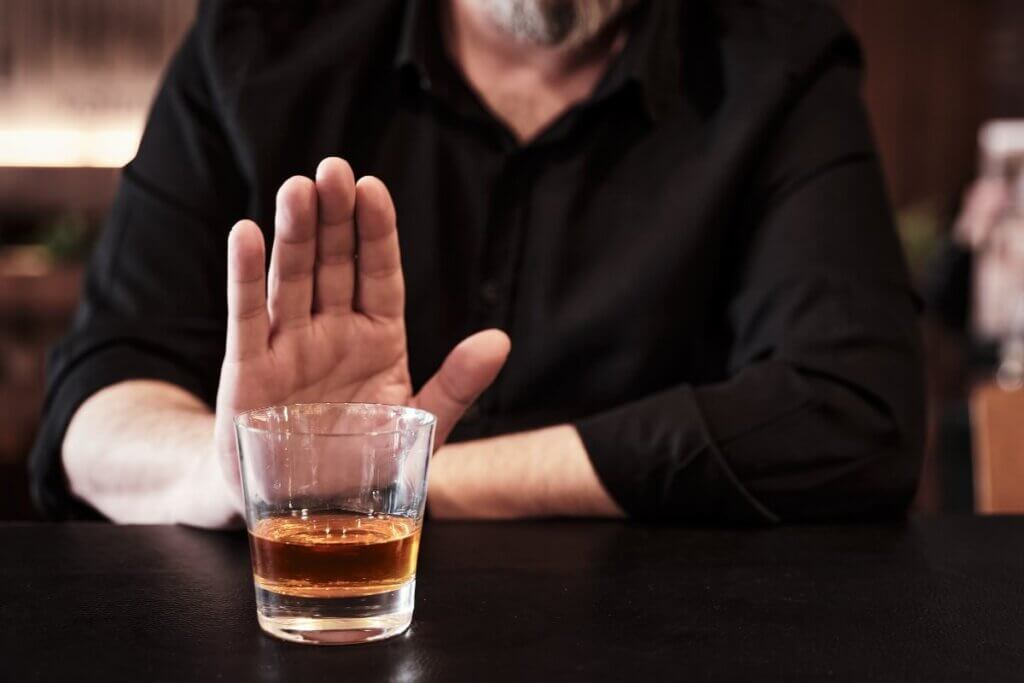Subscribe to receive featured episodes and staff favorites once a month.
Newsletter Signup
The demanding work hours and challenging court cases that lawyers deal with can make them particularly vulnerable to substance use, both legal and illegal. As a result, there’s an increasing number of legal professionals turning to alcohol, creating an ongoing concern for the legal community.
According to a recent study by the ABA Commission on Lawyer Assistance Programs and the Hazelden Betty Ford Foundation, almost 21% of lawyers and other legal professionals were identified as problem drinkers.
American Addiction Centers says the issue of substance abuse among legal professionals can be directly linked to many of the same emotions associated with depression.
No matter how you analyze it, this data is highly alarming and illustrates an unsustainable professional culture that is harming too many people. Attorney impairment poses risks to the affected individuals as well as to our communities, government, economy, and society.
It’s clear that the stakes are too high for us to remain inactive.
It can be difficult for those who have struggled with drinking problems to relive old memories and share the causes and effects of the addiction, but there are several courageous and resilient lawyers who kindly talk about their past in hopes that their stories will shed a light on the matter and help others.
Jason Ward, a retired litigation attorney, joined Litigation Radio host Dave Scriven-Young, a commercial and environmental litigator at Pecker & Abramson, to discuss the impact of alcohol abuse and discuss his journey last summer.
As Ward’s professional career was booming, he began struggling with his mental well-being and substance abuse. He says he placed constant stress on himself, which led to substance abuse problems. He soon realized his drinking was taking over. At its peak, the abuse damaged both Ward’s professional and family relationships.
When he stopped drinking, he moved on to THC to cope with the behavior that his drinking had altered. Ultimately, he was forced to take control of his health by retiring from litigation and seeking professional help. Today, Ward is sober. He is thriving as the co-owner of a full-service firm in Canada, proving that you can overcome your addiction(s) and build a beautiful life.
Listen to Ward’s brutally honest and important story:
Dedicating one’s life to their legal practice and clients can be noble, but legal professionals need to prioritize their habits and health so that they don’t lose sight of themselves while practicing.

Working in a high-stress environment can be challenging enough, let alone when one is actively drinking or hungover.
Dallas-based attorney and mental health advocate Brian Cuban recalls how he mentally tried to justify his struggle with substance abuse, even though he could feel his performance slipping more than a decade ago.
He refers to this process as the “Peter Principle of Addiction,” providing a fascinating example:
“Let’s say you’re billing. When you’re running on all cylinders, you’re sober, you’re giving $1.10 for a dollar. You’re just killing it.
All of a sudden, drinking starts creeping in and it’s 90¢ for a dollar. All of a sudden, it’s 80¢ for a dollar. Suddenly, you’re giving 60¢, then 50¢.
What happens is we work up to our level of incompetence, and then we’re supposed to, when we hit that level, absorb information, get that information and work higher. That’s how we advance in organizations.
But what happens is with addiction, that line of incompetence keeps dropping and getting lower to the floor.
And instead of saying, ‘Maybe I have a problem,’ we kneel under it. So we could tell ourselves, we’re still giving that dollar for a dollar and everything’s great.”
Fortunately, Brian got the help he needed and leaned on his loved ones as he was going through the rough patch.
“If it weren’t for my family supporting me, I’d have been on the street. I’d have been homeless,” he told Lawyerist Podcast.
Brian has been sober since 2007 and now documents his journey on his YouTube channel.
If you are struggling with substance abuse or seeking resources to help a colleague, please visit the following links for further information:
Substance abuse is only one issue that legal professionals have to deal with. The practice of law can lead to its own version of post-traumatic stress disorder (PTSD). Lawyers need to take care of themselves while knowing that support is available and that they are not alone.
On Legal Talk Network, we aim to tell the stories of legal professionals who have found the light at the end of the tunnel after being faced with dark times or health crises. We also make a concerted effort to discuss resources and programs to aid with recovery.
Below are some of our recommended episodes:
Legal Talk Network is a podcast network for legal professionals with hosts from well-known organizations and brands in legal. Over 20 active podcasts cover important legal news and developments, including access to justice, law school, industry events, legal technology, and the future of law.